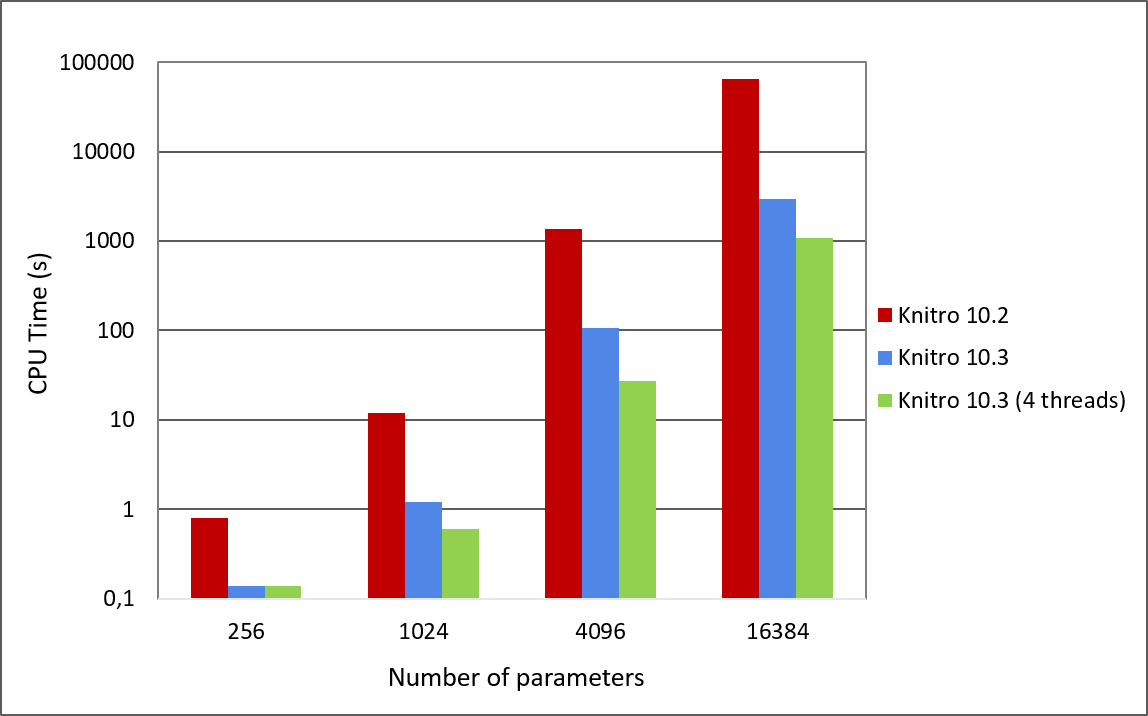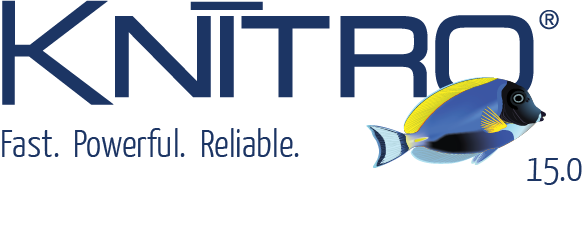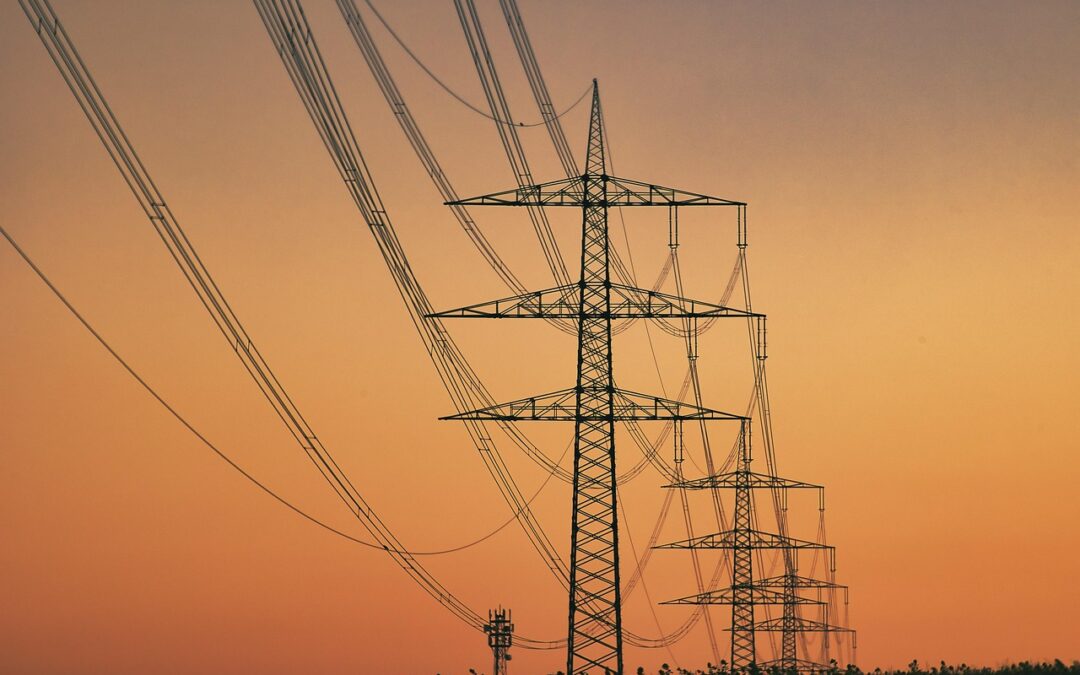Artelys Knitro 10.3: support for Python 3 and improved performance!
From a numerical perspective, large speedups are to be seen on some classes of ill-conditioned models. This is due to new preconditioning techniques applied to the subproblems solved by conjugate gradient method in the Knitro interior-point/barrier algorithms. Furthermore, Artelys Knitro 10.3 offers several improvements to the internal linear algebra and linear solvers used internally for better robustness and efficiency.

Exponential speedups on selected nonlinear least square instance
Additional features:
• Significant improvements in large-scale least-squares models, solving the instances 10 times faster!
• Improvements in the “feasibility restoration phase” used when Knitro is struggling to get feasible allowing faster detection of infeasible models.
• Overall efficiency and robustness improvements on general nonlinear models as well as significant improvements in efficiency on models with integer variables.

Artelys Knitro 15.0: New Tools for Your Large-Scale Models
Artelys is pleased to announce the release of Knitro 15.0, which provides new algorithms and performance improvements to solve your large-scale optimisation problems, whether linear or non-linear, more quickly.

Artelys Introduces Future Sight: a Visualisation Tool Supporting the Energy Transition
As partner in the European Climate + Energy Modeling Forum (ECEMF) – a Horizon 2020 Europe project uniting research institutes and leading energy modellers in Europe – Artelys has contributed to modeling activities powered by Artelys Crystal Super Grid modelisation tool, and has led the development of a fully-fledged visualisation tool.

Supercharging Optimisation: How Artelys, FICO and NVIDIA cuOpt Join Efforts to Scale Up Energy System Optimisation
As energy system models continue to scale—reaching up to hundreds of millions of variables and constraints—traditional CPU-based optimisation solvers are hitting performance and memory bottlenecks. These increasingly complex models are essential for planning Europe’s energy transition, yet solving them within realistic timeframes has become a pressing challenge.

Artelys is powering SEleNe CC’s Common Grid Model (CGM) Service
Artelys provides maintenance and support services of the calculation module used to perform the European Merging Function (EMF) at SEleNe CC
subscribe to our newsletters
© ARTELYS • All rights reserved • Legal mentions
